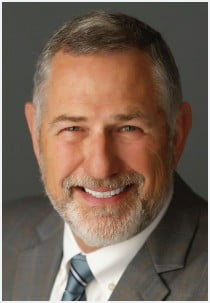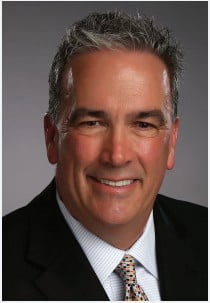Drs. Joel C. Small and Edwin (Mac) McDonald discuss how collaboration can nurture a human approach to your team to foster peak performance.
 Drs. Joel C. Small and Edwin McDonald discuss how to develop a team of peak performers
Drs. Joel C. Small and Edwin McDonald discuss how to develop a team of peak performers
It almost seems counterintuitive that dental practices could be experiencing their best year ever. Considering the numerous demands being placed on dental practices through governmental mandates, lockdowns, new COVID-19 safety protocols, inflation, etc., one would naturally assume that having a successful year would be difficult if not impossible. Yet many of our clients are experiencing their most productive year ever. We have observed this phenomenon and have identified several key factors leading to their success.
A current industry-wide challenge for clinical healthcare practices is staffing. Acquiring and maintaining quality staff have become arduous tasks for most doctors. Consequently, we have to do more with less staff, and being shorthanded can have a profound effect on our current staff as they are having to work harder to maintain productivity. As a result, many of us share a very real concern that our current staff may ultimately burn out and seek employment elsewhere. It is our belief that the longer the staffing shortage issue continues, the more likely this concern will become reality.
Doctors now have to ask more of their teams. Tapping into the teams’ discretionary energy and receiving 110% effort from them requires exceptional leadership skill. Those leaders who know how to access this vital source of energy and scale their teams’ capabilities and capacity to handle an increased workload are finding success despite these current difficulties.
Developing our practices’ human capital by creating peak performing teams is an absolute imperative for success in today’s challenging environment.
Understanding how to develop peak performers will simplify and expedite the process. The following suggestions will prove helpful in achieving this goal.
-
Become a people developer
This concept is not new. Many leadership opinion leaders believe that developing an organization’s human capital is a leader’s primary responsibility. However, developing people goes beyond just developing technical skills. Of equal importance is the development of their mental capabilities and capacity to handle increased workloads.
We are currently working with our clients to help them acquire basic coaching skills, so they can develop their teams’ capabilities much more rapidly and predictably. Coaching as a leadership style is becoming the gold standard for team development and is currently being utilized by many Fortune 500 companies.
Many of us unknowingly serve as a barrier to team development by requiring all decisions to pass through us. Granting teams a degree of autonomy and the authority to make decisions within predetermined boundaries is important, and allowing this to occur within a psychological safe environment is essential. Our staff, just like us, are human, and they will make mistakes even while having the best intentions. With the right attitude and coaching skills, doctors can turn mistakes into valuable teachable moments for our teams, and in doing so, we will see our teams develop into peak performers at an accelerated pace. Furthermore, we will begin to see greater levels of commitment to our cause and begin tapping into our team’s discretionary energy.
-
Become emotionally intelligent
How we see ourselves as leaders doesn’t matter — what matters most is how those we lead view us. Authority can be a double-edged sword. We can use authority to gain compliance from our teams, but authority by itself will never create the necessary commitment that allows us to receive our teams’ discretionary energy.
Those of us who are emotionally intelligent understand the importance of how we show up for our team. Emotionally intelligent leaders are powerful influencers. Through their words and deeds, they create strong practice cultures that are conducive to peak performance.
-
Become a collaborator
Stephen R. Covey — author of The 7 Habits of Highly Effective People (a New York Times best seller) — stated, “We believe we see the world as it is, when in fact we see the world as we are.” Each of us has a lens, created by past experiences, through which we see the world. Too often we mistakenly believe that our worldview is the most accurate and our decisions the most correct. Jennifer Garvey Berger in her book, Unlocking Leadership Mindtraps, stated, “When leaders believe they are right in a complex world, they become dangerous because they ignore data that would show them they are wrong.”
This powerful statement holds true for many of us in the healthcare profession. We are accustomed to making daily unilateral decisions regarding our patients’ care. Unfortunately, this same mindset does not serve us well as leaders. By collaborating with our teams and advisors, we are inviting a diversity of opinions and experiences that will prove valuable in making the best possible decisions. Furthermore, by including our teams in the decision-making process, they will feel empowered and appreciated for their contribution and will feel less inhibited when offering valuable unfiltered feedback in the future.
-
Be trustworthy
Trust is foundational to everything we have mentioned. Without trust, peak performance will be unreachable. Trust develops over time and requires an adherence to commonly shared values and our consistency between words and deeds.
If you have not already noticed, this entire process is all about us, the leaders. Taking teams to peak performance will happen if we allow it and make it happen. Our teams will never exceed our ability to lead them. We must define what peak performance looks like for our team and coach them toward reaching this worthy goal.
What do we value in the endodontic practice? Besides collaboration, Dr. Small shares his core values and guiding principles in this article: https://endopracticeus.com/small-talk/
Stay Relevant With Endodontic Practice US
Join our email list for CE courses and webinars, articles and more..


 Drs. Joel C. Small and Edwin (Mac) McDonald have a total of over 75 years of dental practice experience. Both doctors are trained and certified Executive Leadership Coaches. They have joined forces to create Line of Sight Coaching, a business dedicated to helping their fellow dentists discover a better and more enjoyable way to create and lead a highly productive clinical dental practice. Through their work, clients experience a better work/life balance, find more joy in their work, and develop a strong practice culture and brand that positively impact their bottom line. To receive their free ebook, 7 Surprising Steps to Grow Your Practice Through Leadership, go to
Drs. Joel C. Small and Edwin (Mac) McDonald have a total of over 75 years of dental practice experience. Both doctors are trained and certified Executive Leadership Coaches. They have joined forces to create Line of Sight Coaching, a business dedicated to helping their fellow dentists discover a better and more enjoyable way to create and lead a highly productive clinical dental practice. Through their work, clients experience a better work/life balance, find more joy in their work, and develop a strong practice culture and brand that positively impact their bottom line. To receive their free ebook, 7 Surprising Steps to Grow Your Practice Through Leadership, go to 